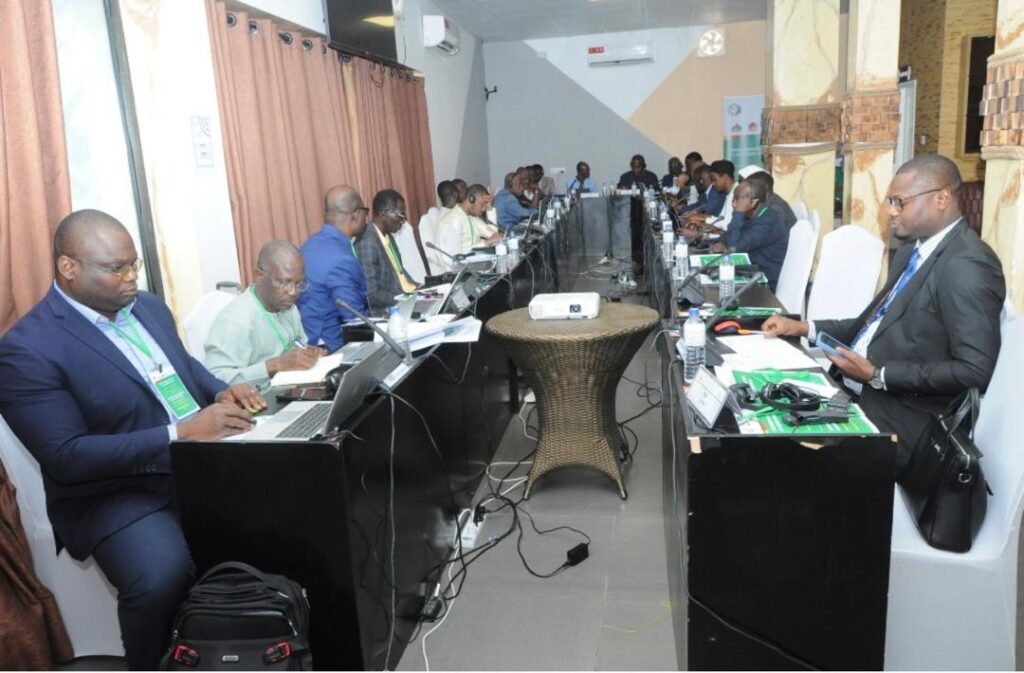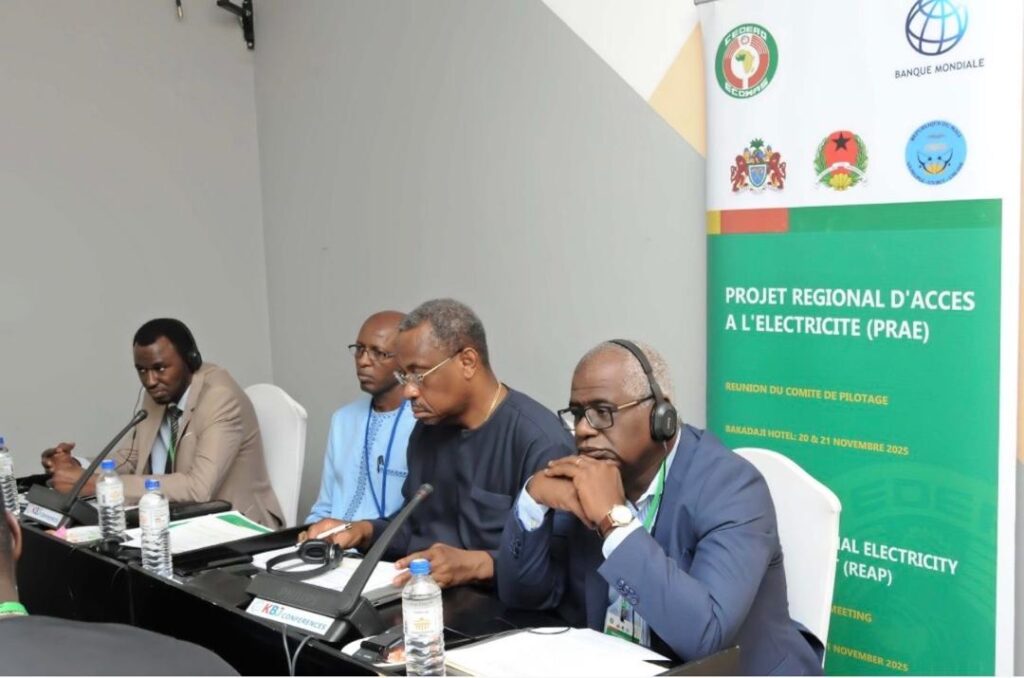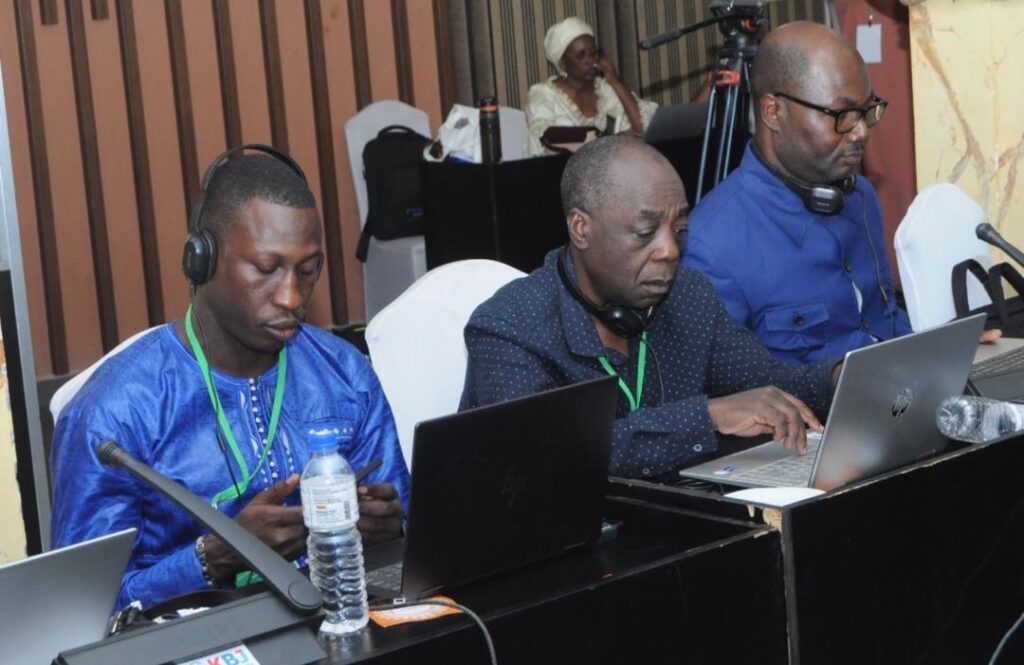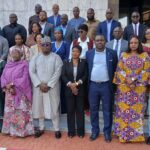ECOWAS Fast-Tracks Last-Mile Power Push as REAP Nears Crucial 2026 Finish Line, Hold Meeting in Gambia.
By Raymond Enoch
The Gambia has taken centre stage in West Africa’s drive for universal electricity access as the ECOWAS Regional Electricity Access Project (REAP) enters a decisive phase, with regional leaders setting 2026 as the year to complete remaining works across three beneficiary countries.

Senior energy officials from The Gambia, Guinea-Bissau and Mali converged in Banjul on 20 and 21 November 2025 for the 8th Steering Committee Meeting of REAP, a World Bank–supported regional project designed to close the energy access gap for hundreds of rural and peri-urban communities. The Steering Committee, a key governance mechanism of the project, met to review progress, confront implementation challenges and sharpen strategic direction as the programme moves into its final stretch.

Chaired by ECOWAS Acting Director of Energy and Mines, Mr. William Baidoe, the Banjul meeting brought around one table an influential cast: the Managing Director of NAWEC of The Gambia, the Director General of EAGB of Guinea-Bissau, the National Director of Energy of Mali, the Directors of Energy of The Gambia and Guinea-Bissau, alongside other members of the Steering Committee, coordinators and technical experts from the Regional Coordination Unit (RCU) and the national Project Implementation Units (PIUs). Together, they took a hard look at progress on the ground — and the distance still to be covered.

Updated figures presented to the Committee painted a picture of both success and imbalance. The Gambia emerged as the standout performer with an execution rate of 94.8 per cent, reflecting rapid rollout of electrification infrastructure and strong implementation momentum. Guinea-Bissau followed with an 84 per cent execution rate. Mali, however, stood at 36.4 per cent, highlighting a more challenging context and underscoring the need for heightened support, tighter coordination and more aggressive contractor oversight.
Beyond percentages, the impact of REAP is already being felt in communities. In October 2025 alone, electrification infrastructures were commissioned in 93 localities in The Gambia and 44 in Guinea-Bissau. For households and businesses in these areas, the switch from darkness to light is reshaping economic possibilities, education opportunities and public service delivery, especially in health and small-scale commerce. The Steering Committee recognised these gains but warned that consolidating them requires pushing through the final implementation hurdles without complacency.
During the two-day deliberations, the Committee adopted the 2026 annual work plan and budget for both the RCU and the PIUs, effectively providing a roadmap for the last mile of the first phase of REAP. Members issued clear recommendations to address outstanding challenges and, in particular, stressed the need for each unit to strengthen efforts in monitoring and managing contractors to ensure that remaining works are completed within the 2026 timeframe. The tone from the chair was one of urgency and responsibility, as the Steering Committee reaffirmed its role as the project’s strategic compass and accountability anchor.
With a total envelope of USD 225 million, the ECOWAS Regional Electricity Access Project is the first phase in a broader series of World Bank–backed operations aimed at boosting electricity access across West Africa. This initial phase focuses on three countries — The Gambia, Guinea-Bissau and Mali — and is expected to deliver electrification to 675 localities: 395 in The Gambia, 66 in Guinea-Bissau and 214 in Mali. Once completed, the project will generate about 147,000 new electricity connections, extending power to homes, schools, health centres and small enterprises that have long operated on the margins of national grids.
In Banjul, participants underscored that the performance of the Regional Coordination Unit and national PIUs will be crucial not only for REAP’s success, but also for the credibility of ECOWAS-led regional infrastructure initiatives more broadly. Effective delivery, they agreed, will send a strong signal to development partners that complex, multi-country projects in West Africa can be implemented with discipline, transparency and impact.
Yet the stakes stretch far beyond institutional reputations. For many communities in rural Mali — where the execution rate remains below 40 per cent — the progress of REAP will determine when children can study after dark, when clinics can reliably power equipment, and when small enterprises can expand beyond daylight hours. The Steering Committee chose to frame Mali’s slower pace as a call to action rather than a setback, stressing the need to accelerate work in the country while maintaining quality and safety standards.
As discussions drew to a close, one message stood out: this project is more than just poles, wires and transformers. By bringing together three countries under one regional framework, REAP is helping to lay the foundations for a more integrated and resilient West African power landscape. Strengthened distribution networks at the local level will, over time, complement cross-border interconnections and regional power pools, advancing ECOWAS’ broader vision of secure, affordable and reliable electricity for all.
From Banjul, the signal to the region is unambiguous. The ECOWAS Regional Electricity Access Project has moved beyond planning and pilots into tangible community impact, with The Gambia and Guinea-Bissau already showcasing what is possible when political will, technical expertise and financing converge. With a 2026 work plan now endorsed and clear directives issued to overcome remaining obstacles, the first phase of REAP is entering its decisive chapter — one where delivery, not delay, will define the story of West Africa’s race towards universal electricity access.









